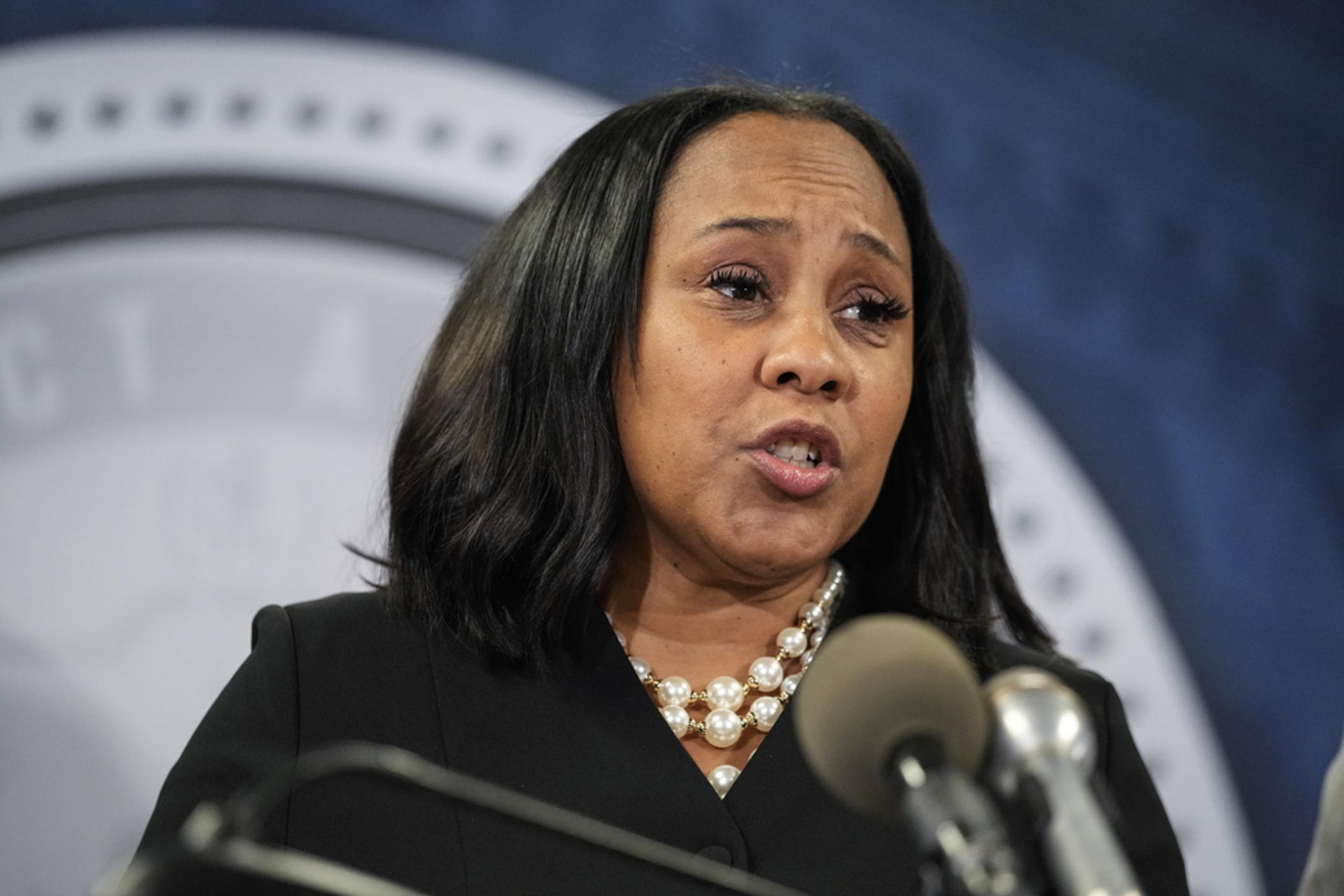Section Branding
Header Content
Judge will hold hearing on ex-DOJ official's request to move Georgia election case to federal court
Primary Content
A federal judge who rejected efforts by former Trump White House chief of staff Mark Meadows to move his charges in the Georgia election subversion case to federal court is set to hear arguments on Monday from former Justice Department official Jeffrey Clark on the same issue.
Fulton County District Attorney Fani Willis has accused Clark and Meadows, along with former President Donald Trump and 16 others, of participating in a wide-ranging scheme to overturn Democrat Joe Biden's presidential election victory and keep the Republican Trump in power. The 41-count indictment includes charges under the state's anti-racketeering law. All 19 defendants have pleaded not guilty.
Clark is one of five defendants seeking to move his case to federal court. U.S. District Judge Steve Jones, who will preside over Monday's hearing, rejected Meadows' attempt for removal earlier this month, saying the actions outlined in the indictment were taken on behalf of the Trump campaign and were not part of his official duties. While the ruling could signal an uphill battle for Clark and the others, Jones made clear he would assess each case individually.
The practical effects of moving to federal court would be a jury pool that includes a broader area than just overwhelmingly Democratic Fulton County and a trial that would not be photographed or televised, as cameras are not allowed inside federal courtrooms. But it would not open the door for Trump, if he's reelected in 2024, or another president to issue pardons because any conviction would still happen under state law.
The indictment says Clark wrote a letter after the November 2020 election that said the Justice Department had "identified significant concerns that may have impacted the outcome of the election in multiple States, including the State of Georgia" and asked top department officials to sign it and send it to Georgia Gov. Brian Kemp and state legislative leaders. Clark knew at the time that that statement was false, the indictment alleges.
In a court filing seeking to move the charges against him to federal court from Fulton County Superior Court, lawyers for Clark argued that the actions outlined in the indictment "relate directly to his work at the Justice Department as well as with the former President of the United States." Clark was the assistant attorney general overseeing the environment and natural resources division and was the acting assistant attorney general over the civil division at the time.
"Indeed, the State has no authority whatsoever to criminalize advice given to the President by a senior Justice Department official concerning U.S. Department of Justice law enforcement policy based on a County District Attorney's disagreement with the substance or development of that advice," Clark's lawyers wrote.
They accused Willis, a Democrat, of persecuting political rivals: "It is not a good-faith prosecution; it is a political 'hit job' stretched out across 98 pages to convey the false impression that it has heft and gravity."
Prosecutors argued that Clark's two roles gave him no authority over elections or criminal investigations.
He was told by top department officials that the central claim in his letter was false, that he didn't have authority to make that claim and that it was outside the department's role, prosecutors wrote in their response. Richard Donoghue, the acting deputy attorney general, told him the letter "amounted to 'nothing less than the Department meddling in the outcome of a presidential election.'"
The law allowing federal officers to move a case to federal court "is designed to protect legitimate federal authority from state and local interference, not to afford a federal forum to individuals who blatantly sought to misuse the weight of federal authority to interfere with matters of state control," prosecutors wrote.
Meadows, who is appealing Jones' ruling, took the stand and testified for nearly four hours last month, answering questions from his own lawyer, a prosecutor and the judge. He talked about his duties as Trump's last chief of staff and sometimes struggled to recall the details of the two months following the election.
It's unclear whether Clark will also choose to testify. His lawyers on Thursday filed a 10-page sworn statement from Clark outlining his service in the Justice Department, perhaps as a substitute for having him testify and subject himself to questioning by prosecutors.
Clark was also identified as one of six unnamed co-conspirators in an indictment filed by special counsel Jack Smith charging Trump with seeking to illegally overturn the results of the 2020 election and block the peaceful transfer of power to Biden. He has not been charged in that case.
Federal agents searched Clark's Virginia home in the summer of 2022, and video emerged of him standing in his driveway, handcuffed and wearing no pants.


